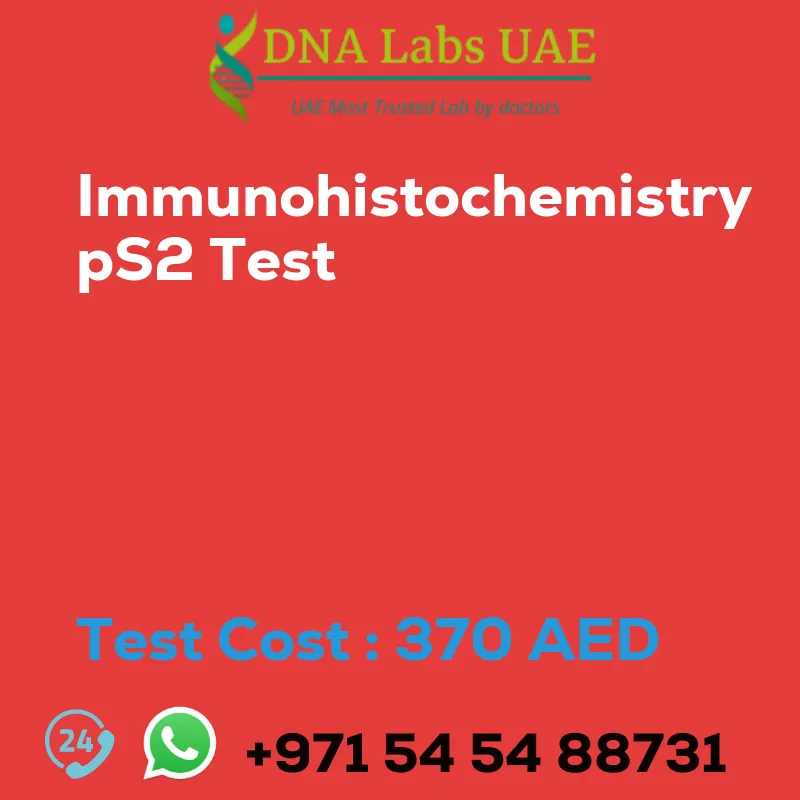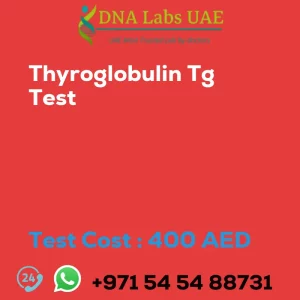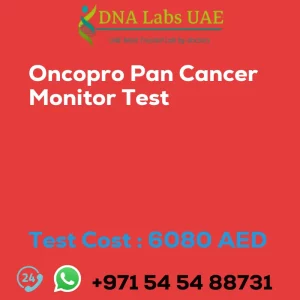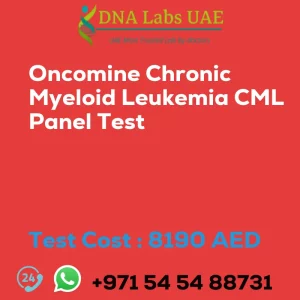IMMUNOHISTOCHEMISTRY pS2 Test
Test Name: IMMUNOHISTOCHEMISTRY pS2 Test
Components: pS2 protein detection
Price: 370.0 AED
Sample Condition: Submit tumor tissue in 10% Formal-saline OR Formalin fixed paraffin embedded block. Ship at room temperature. Provide a copy of the Histopathology report, Site of biopsy and Clinical history.
Report Delivery: Sample Daily by 6 pm; Report Block: 5 days, Tissue Biopsy: 5 days, Tissue large complex: 7 days
Method: Immunohistochemistry
Test type: Cancer
Doctor: Oncologist, Pathologist
Test Department: Pre Test Information
Pre Test Information: Provide a copy of the Histopathology report, Site of biopsy and Clinical history.
What is the IMMUNOHISTOCHEMISTRY pS2 Test?
The IMMUNOHISTOCHEMISTRY pS2 test is a diagnostic test used in pathology to detect the presence of pS2 protein in tissue samples. pS2 (prostatic secretory protein 94) is primarily expressed in the gastrointestinal tract, specifically in the stomach and breast tissue. This test is commonly used in the evaluation of breast cancer and gastric cancer.
How does the IMMUNOHISTOCHEMISTRY pS2 Test work?
The IMMUNOHISTOCHEMISTRY pS2 test is performed on tissue samples obtained through a biopsy or surgical resection. The tissue is processed, sectioned, and mounted on glass slides. These slides are then incubated with specific antibodies that bind to the pS2 protein. If pS2 is present in the tissue, the antibodies will bind to it, and a staining reaction will occur. This staining reaction can be visualized under a microscope, allowing pathologists to assess the presence and distribution of pS2 in the tissue sample.
Why is the IMMUNOHISTOCHEMISTRY pS2 Test important?
The results of the IMMUNOHISTOCHEMISTRY pS2 test can provide valuable information for the management and treatment of breast and gastric cancers. It can help in determining the appropriate course of therapy, such as hormone therapy for estrogen receptor-positive breast cancer. Additionally, the pS2 test can aid in predicting the prognosis and overall outcome for patients with these types of cancers.
It is important to note that the IMMUNOHISTOCHEMISTRY pS2 test is just one component of a comprehensive diagnostic evaluation. It is typically used in conjunction with other tests, such as hormone receptor status testing, HER2/neu testing, and other molecular markers, to provide a more complete picture of the tumor characteristics and guide treatment decisions.
| Test Name | IMMUNOHISTOCHEMISTRY pS2 Test |
|---|---|
| Components | |
| Price | 370.0 AED |
| Sample Condition | Submit tumor tissue in 10% Formal-saline OR Formalin fixed paraffin embedded block. Ship at room temperature. Provide a copy of the Histopathology report, Site of biopsy and Clinical history. |
| Report Delivery | Sample Daily by 6 pm; Report Block: 5 days Tissue Biopsy: 5 days Tissue large complex : 7 days |
| Method | Immunohistochemistry |
| Test type | Cancer |
| Doctor | Oncologist, Pathologist |
| Test Department: | |
| Pre Test Information | Provide a copy of the Histopathology report, Site of biopsy and Clinical history. |
| Test Details |
Immunohistochemistry (IHC) pS2 test is a diagnostic test used in pathology to detect the presence of pS2 protein in tissue samples. pS2 (prostatic secretory protein 94) is a protein that is primarily expressed in the gastrointestinal tract, specifically in the stomach and breast tissue. The pS2 test is commonly used in the evaluation of breast cancer and gastric cancer. It can help in determining the type and characteristics of the tumor, as well as predicting the response to certain treatments. pS2 is considered a marker for estrogen receptor-positive breast cancer, meaning that its presence indicates that the cancer cells are responsive to hormone therapy. The test is performed on tissue samples obtained through a biopsy or surgical resection. The tissue is processed, sectioned, and mounted on glass slides. These slides are then incubated with specific antibodies that bind to the pS2 protein. If pS2 is present in the tissue, the antibodies will bind to it, and a staining reaction will occur. This staining reaction can be visualized under a microscope, allowing pathologists to assess the presence and distribution of pS2 in the tissue sample. The results of the pS2 test can provide valuable information for the management and treatment of breast and gastric cancers. It can help in determining the appropriate course of therapy, such as hormone therapy for estrogen receptor-positive breast cancer. Additionally, the pS2 test can aid in predicting the prognosis and overall outcome for patients with these types of cancers. It is important to note that the pS2 test is just one component of a comprehensive diagnostic evaluation. It is typically used in conjunction with other tests, such as hormone receptor status testing, HER2/neu testing, and other molecular markers, to provide a more complete picture of the tumor characteristics and guide treatment decisions. |







